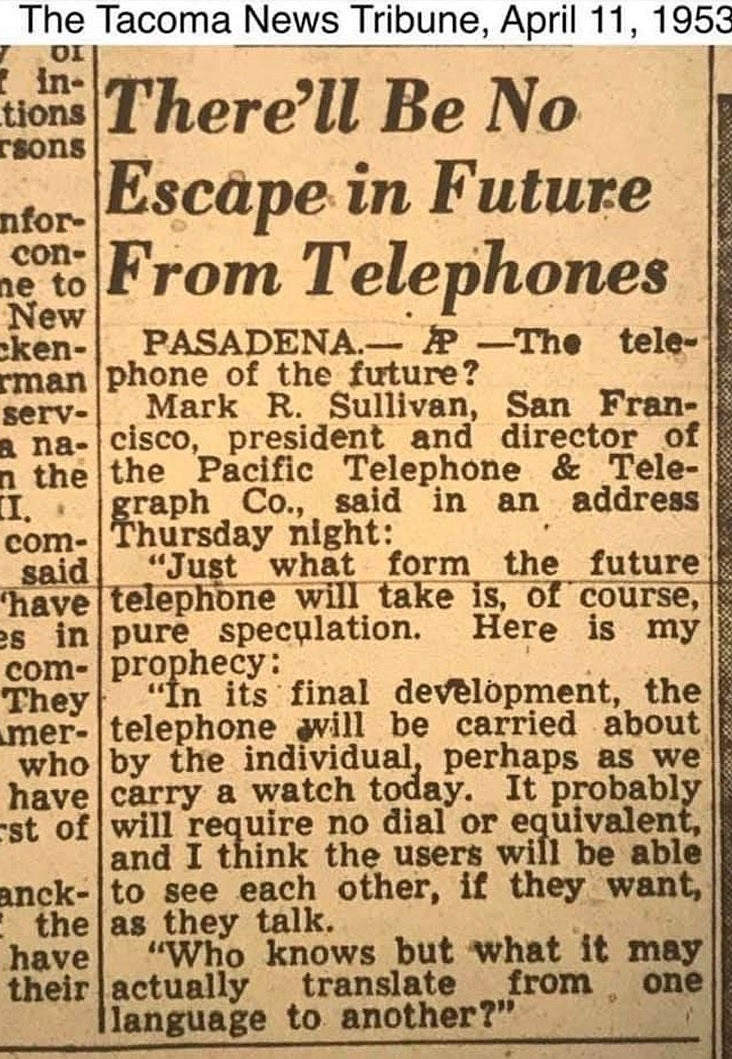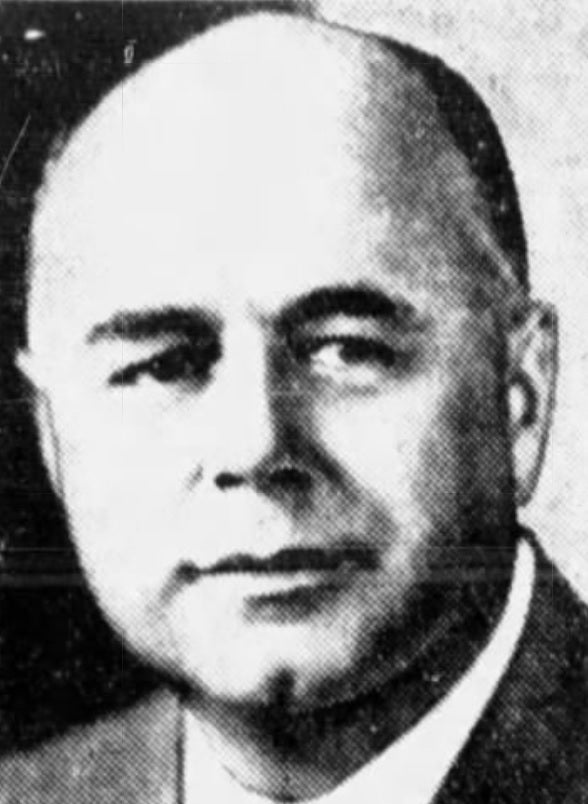Telephone executive predicts the smartphone...in 1953!

Ask your favorite digital assistant to name the very first smartphone and you will probably hear that the title belongs to IBM's Simon personal communicator. Born in 1994 as the love child of a cellphone and a personal digital assistant (PDA), Simon even allowed users to send and receive faxes. 50,000 Simon units were rung up in the early 1990s which sounds like nothing compared to the number of iPhone handsets sold each year on the latest model's release date.
Pacific Tel and Tel executive Mark Sullivan forecast a few smartphone features...back in 1953
According to an old newspaper clip that was posted by Open Culture, 41 years before IBM created the first smartphone, a telephone company executive predicted what a modern telephone might be able to do. Published in the Tacoma News Tribune on April 11th, 1953 when Steve Jobs was a bit over two years old, the newspaper quotes Mark R. Sullivan, president and director of the Pacific Telephone and Telegraph company based in San Francisco.

Phone executive Sullivan discusses future smartphone features back in 1953
Talking about the phone of tomorrow, Sullivan said, "Just what form the future telephone will take, is, of course, pure speculation." Sullivan hit the nail squarely on the head when he said, "In its final development, the telephone will be carried about by the individual, perhaps as we carry around a watch today. It probably will require no dial or equivalent, and I think the users will be able to see each other, if they want, as they talk."
Think about this. 54 years before the unveiling of the OG iPhone, Sullivan predicted a portable touchscreen (no dial) handset and 57 years before the debut of FaceTime, the telephone company executive was talking about the key feature of video chat. Mark also could see far enough in the future to forecast the eventual development of language translation apps. "Who knows," he said, "but it [the future phone] may actually translate from one language to another?"
The story was disseminated throughout the country by The Associated Press. Sullivan, who was born in 1896, also predicted a device about the size of a small typewriter that would automatically record how long a user's phone calls were without needing an operator to "record the call for accounting purposes." Sullivan passed away at age 89, just a couple of years after the first commercially available cellphone, the Motorola DynaTAC 8000X, was released.
One headline says that there will be no escape in the future from telephones
But it wasn't until the modern smartphone was created that Sullivan's predictions actually came true. Imagine how wealthy Sullivan could have been had he been able to back up his forecasts by investing in them. Sullivan's appearances at business conferences usually included a speech that mentioned his forecasts for the telephone. In one prescient headline, the Tacoma newspaper topped a story about one of his speeches by writing "There’ll Be No Escape in Future From Telephones."

Mark Sullivan
And boy, has that turned out to be the truth. Try walking on a city street or dining at a restaurant and you will see how there is no escape from handsets these days whether the phones in question are yours or whether they belong to someone else. While Sullivan correctly predicted future capabilities that ended up being found on the smartphone, it is not likely that he could predict the form factor and the size of today's smartphones.
You have to keep in mind that the transistor was only a few years old in 1953. The first SoC was still 21 years away when Sullivan made his prophecy about the future of telephones.
The executive wasn't the only person who saw phones with video chat capabilities in the future. Science Fiction author Isaac Asimov wrote an op-ed piece for The New York Times in 1964 stating that in the future, communication devices would sport a screen that would allow users to "see as well as hear the person you telephone." Asimov added that "the screen [would] be used not only to see the people you call, but also for studying documents and photographs and reading passages from books."
Follow us on Google News












Things that are NOT allowed:
To help keep our community safe and free from spam, we apply temporary limits to newly created accounts: